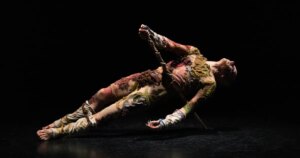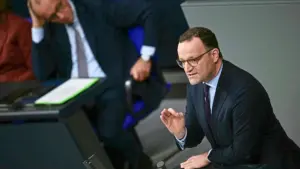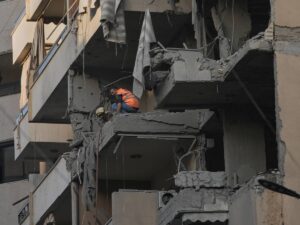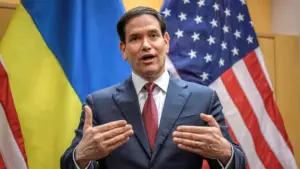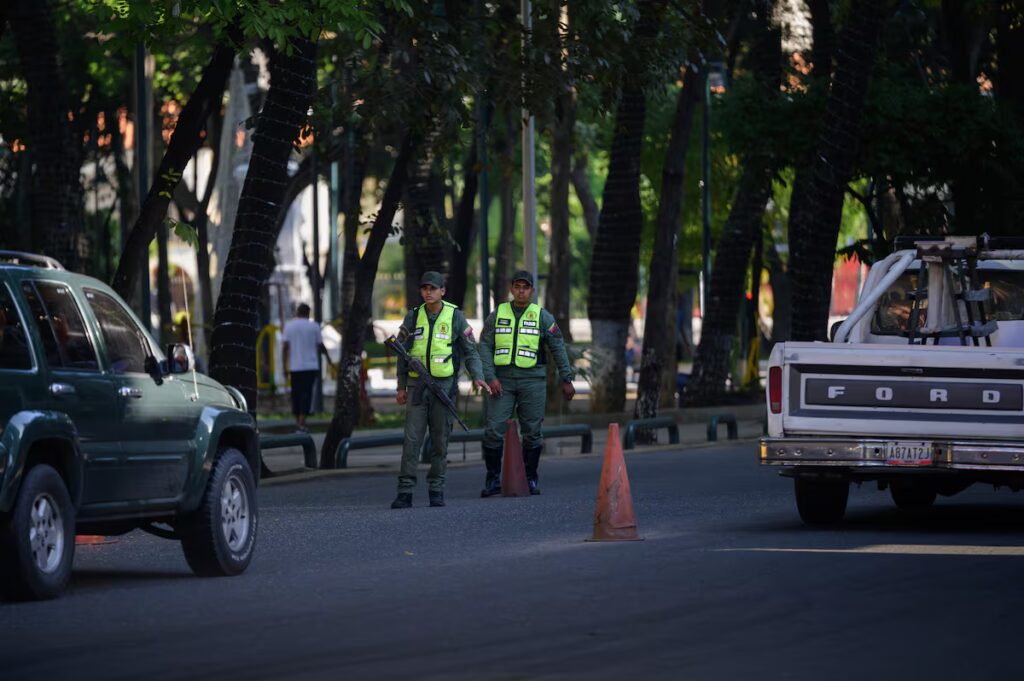
In Caracas people speak in hushed tones. Conversations about politics are whispered, as if the walls were listening. WhatsApp messages are deleted once they are finished reading and automatic self-destruction of chats has been normalized. In family groups, where conversations of all kinds once abounded, now only recipes, photos of children or neutral emojis are shared. No one sends audio or comments that could be used as evidence in criminal cases indicating any opposition to Chavismo. The fear of denunciation runs through everything.
Caution has been part of Venezuelan life for years, but it has evolved into a permanent state of fear. The same experience that President Nicolás Maduro himself faces when faced with Donald Trump’s pressure strategy, which maintains a military contingent of over 15,000 soldiers in the Caribbean waters. As tension expands outward, it grows inward. While Chavismo denounces conspiracies and calls for “national unity” against US intervention, arrests of opponents, local leaders and citizens accused of conspiracy or treason are multiplying. Human rights organizations count more than 800 political prisoners and warn that October marked a new peak: more than one a day.
On the street people avoid certain topics. “You have to be careful, you can’t talk too much here, they can put you in prison. There are people who believe that this is a game, no sir. The Chavistas themselves are the spies (report),” says Anaís Rodríguez, a resident of Petare and concierge in a building in Caracas. It is a widespread perception: that any word can be used against those who pronounce it.
The Chavista militancy, despite being a minority in the face of general discontent, is organized and plays an active role in social control. On alert, Maduro recently called to report any “suspicious activity” via VenApp, an application originally created to monitor failures in public services. Added to this is the territorial structure of the United Socialist Party of Venezuela, with more than 47,000 “street bosses,” who coordinate the distribution of food and domestic gas and serve as nodes of informal surveillance, what the government calls “social intelligence.”
On Friday morning, in a public park in eastern Caracas, a middle-class residential area where Caracasians go for a run or walk their pets, intelligence officers arrested a man who was exercising. They arrested someone who was doing physical activity. He was Roberto Vermont, a low-profile political leader and supporter of the opposition María Corina Machado. They didn’t say where they were taking him. Nobody asked.
The list of detainees that human rights organizations have been registering for months continues to grow. The government has stepped up surveillance and arrests as a way to punish critics. Vermont’s capture came just days after the 30-year prison sentence against Dr. Marggie Orozco became known for a private audio broadcast on WhatsApp during the campaign. In it he criticized Nicolás Maduro and encouraged his neighbors to vote. She was accused of “treason”, “terrorism” and “conspiracy”.
The opposition is reduced to its minimum expression. Its most visible leaders are in exile, hidden or directly erased from the public scene. The opposition tolerated by the Government expresses sporadic criticism, always measured, attentive, conditioned. And each new arrest maintains the state of alert, even if there are also releases: this week the leader Macario González, the former president of Fedecámaras, Noel Álvarez, and the French yoga teacher Camilo Castro, detained on the border with Colombia, regained their freedom.
The harsh clashes between Chavismo and the opposition in recent years have consolidated growing authoritarianism. As has not happened for at least seven decades – with the military regime led by Marcos Pérez Jiménez – fear has taken hold in large sectors of society. After the episodes of violence following last year’s presidential elections – when thousands of citizens protested denouncing fraud to re-elect Maduro – the relationship between the state and citizens broke down. Without having decreed it, since last year the Chavista regime has become radicalized: it has tightened its customs, abandoned the tolerance zones and turned up the volume of its narrative. Repression is sometimes random, an alarm signal.
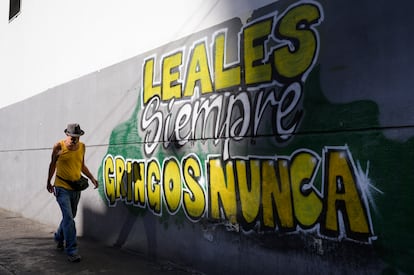
Chavismo is on alert. In the center of Caracas, the seats of political power have strengthened surveillance and protection barricades. Domestic tension has worsened as confrontation with the United States has grown. The scenario is so uncertain that everything is ready even for armed struggle.
A few days ago, residents of the former presidential residence – a complex where Maduro hosts official events, even though he does not live there – once again had to pass checkpoints set up by military intelligence agents, uniformed with black balaclavas and carrying rifles on their shoulders. Traffic was blocked for hours due to an alleged threat of explosives, which was later ruled out. Police checkpoints are now part of the nocturnal landscape of Caracas. At certain times they occupy avenues and residential areas. Intelligence forces are present in shopping malls, residential complexes and transport stations, observing and detaining anyone they deem suspicious.
“Digital hygiene” has become common advice among security experts, activists and journalists: delete conversations, avoid audio, limit sensitive content. What was once a specific recommendation is now a widespread practice. Many sources prefer not to speak. Information from polls and opinion polls began to disappear from public space or circulate only in private. Opinion programs operate under an obvious discursive roof. There are currently 20 journalists imprisoned in the country. The social network The opposition’s arguments cannot be expressed in any medium. Silence prevails.
